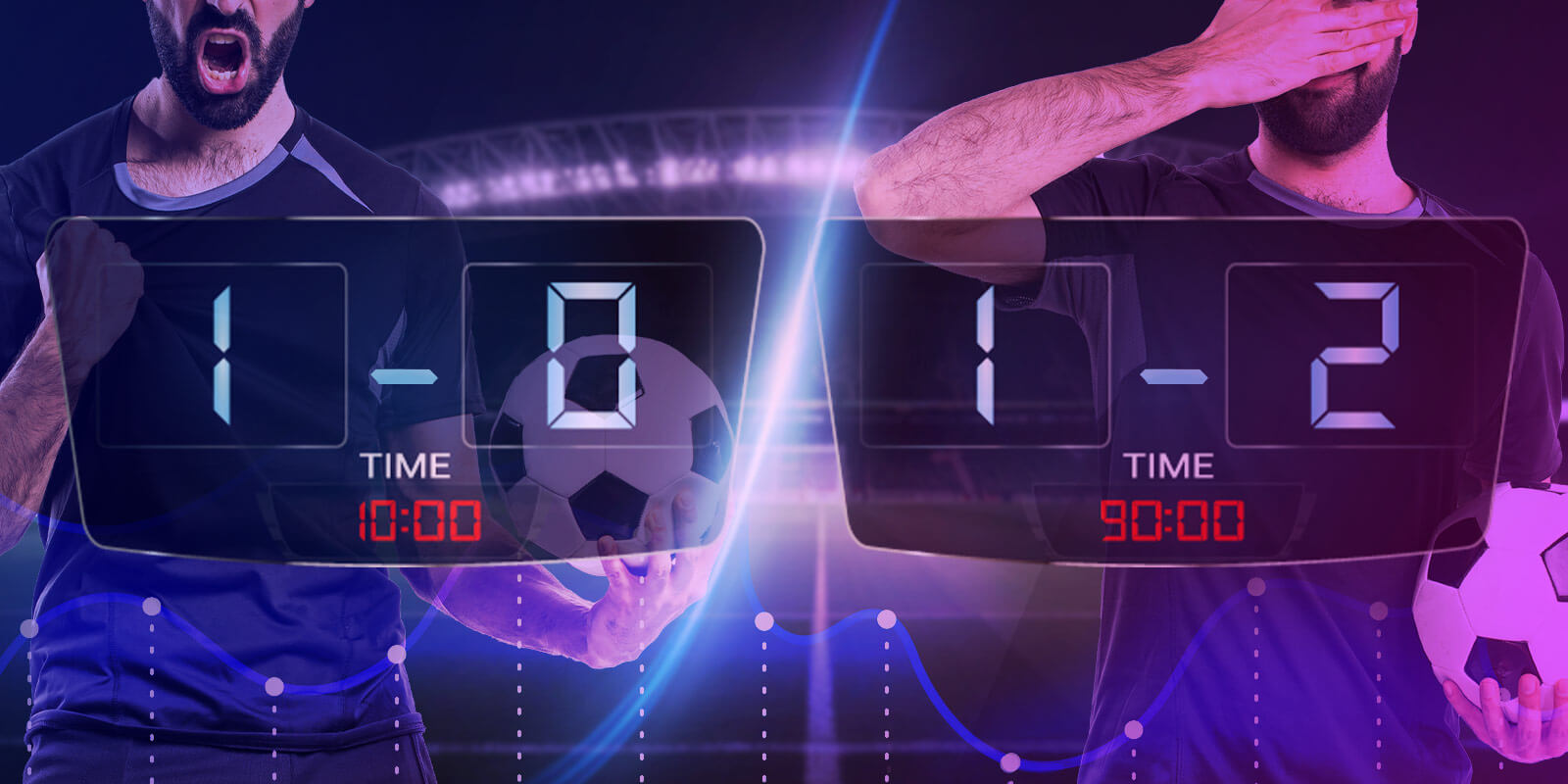What Are the Odds of Scoring First and Still Losing?

Affiliate Disclosure : We earn a commission from partners links on BetterGambling. Commissions do not affect our editors' reviews, recommendations, or ratings.
According to a study of over 90,000 matches across major European leagues, teams that score first go on to win around 66.31% of the time, draw about 20.7%, and lose only about 12%. That means that while scoring first does increase your chances, the probability of losing after scoring first is far from zero. Let’s break down the mechanics behind this football paradox.
Statistical Framework: Conditional Probability in Match Outcomes
We’ll use conditional probability to measure the odds of a team scoring first and still losing. In probability terms, we want to calculate:
P(Loss/Scored First) = P(Scored First and Lost)P(Scored First)
In simpler terms, what’s the chance of a team losing after scoring first?
Let’s say, in 10,000 matches, 6,500 teams that scored first ended up winning, with 2,000 drawing and 1,500 losing.
So,
- P(Scored First and Lost) = 1,500 / 10,000 = 0.15
- P(Scored First) = (6,500 + 2,000 + 1,500) / 10,000 = 1.0
Therefore,
P(Loss∣Scored First) = 0.151.0 = 0.15 or 15%
What does this tell us? That in approximately 1 out of every 7 matches, the team that scores first will lose.
Worth noting, however, is that this model assumes scoring first is an independent event, which it absolutely is not. Scoring first in a pro game will change everything, from psychology to tactics and momentum. So while conditional probability is useful, it is only a rough approximation of match dynamics and is, therefore, not foolproof.
Temporal Dynamics: Timing of the First Goal
Not all first goals are the same. An opening goal scored in the second minute is completely different from one scored towards the end of the second half.
A study published in the Journal of Sports Analytics found that first goals scored before the 15th minute of the match actually increase the chance of the conceding team eventually winning.
Why, you may ask? Because the scoring team starts defending their lead too early and the conceding one now gets more reason to throw players forward, which increases the probability of them recovering and retaliating. That’s why we say 1-0 with 80 minutes to go is barely a lead at all.
Later goals, on the other hand, correlate more strongly with wins. If a team scores first after the 60th minute, their probability of losing drops significantly to about 5%. The reason for this? Well, the losing team has neither the morale nor the time to push for an equaliser and, potentially, a winner.
My advice? The next time your team goes 1-0 up in minute 5, don’t pop the champagne just yet. First, wait for VAR to do a scan for a foul that may have happened 50 yards out in the build-up to the goal. Then, sit tight and pray to God that the other team doesn’t take it personally.
Case Studies: Notable Matches Where the Lead Was Lost
- Barcelona 6–1 PSG (2017, UCL): The famous Barca comeback, remember? With Neymar absolutely running the show and Sergi Roberto scoring in the 95th minute? Okay here’s what happened: PSG had a 4-0 advantage from the first leg, played in Paris, meaning they were bound to proceed to the next round even if they lost 3-0 in the reverse fixture. They even scored an away goal at Camp Nou (back when away goals counted). Still, Barca scored six, and the Parisians lost 6-5 on aggregate. A lead and a goal weren’t enough to stop the most dramatic of comebacks in the UEFA Champions League.
- Manchester City 2–3 Manchester United (2018): City scored twice in the first half and could’ve sealed the title with a win, but their noisy neighbours, as they like to call each other, were having none of it. Three second-half goals from Pogba and Smalling ensured the title celebrations waited another matchweek.
- Netherlands 2–3 Czech Republic (EURO 2004): The Dutch led early through Bouma but collapsed under Czech pressure, conceding three in return.
Conclusion: Synthesising Insights on Scoring First and Losing
Scoring first gives a team a strong advantage, but it does not mean an automatic win. If it did, football would be the most predictable and boring sport in the history of boring sports.
Around 10–15% of teams that score first still lose, and that number depends heavily on timing, venue, team quality, and even mentality.
Conditional probability helps us quantify the odds, but how the match plays out relies heavily on whether the leading team stays aggressive and piles even more pressure on their victims or pulls back and invites action in its own half.
If you’re a fan, the takeaway is simple: enjoy the opening goal, but don’t start tweeting about winning yet. And if you’re a coach? Maybe keep pressing forward after going 1-0 up. The data says that’s where matches are really won—or lost.




